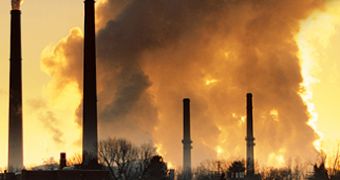About a week ago, we reported on the fact that 90 US mayors offered their support to the nation's Environmental Protection Agency (EPA) in its efforts to push new Mercury and Air Toxics Standards (MATS).
One of them was the mayor of New York City, Michael Bloomberg.
Their main concern at the time was keeping the citizens safe from harm, as the air pollutants taken into consideration by EPA's new environmental standards are known to cause serious health conditions.
Studies indicate that the ones most often affected by these harmful substances are pregnant women and children.
Amongst the air pollutants targeted by EPA are mercury, arsenic, cyanide, nickel and acid gases, all of which are by-products of the coal industry.
Apparently, scientists from the Biodiversity Research Institute and from the Great Lakes Commission already raised an alarm with respect to this national threat.
They recently reported publicly that “Mercury hot spots from coal-fired power plants have been found in Michigan, Ohio, and New York along Lake Erie, and areas around the southern half of Lake Michigan in Wisconsin and Illinois.”
As was to be expected, pro-coal legislators were not going to simply let EPA have its way, especially given the fact that the coal industry in the US is known to generate significant incomes.
Thus, Senator James Inhofe took it to himself to introduce a Congressional Review Act, meant to block these new air pollution standards.
As Sierra Club reports, a final decision is expected throughout the course of this day.
The same source explains that, should Senator James Inhofe have his way and succeed in not allowing EPA to implement new standards for air quality, an unfortunate precedent would be set.
In the future, this could lead to EPA's being prevented from regulating toxic air pollution time and time again.
From where we stand, we hope that the Congress's decision will favor EPA's cause over James Inhofe's attempt to aid the coal industry.

 14 DAY TRIAL //
14 DAY TRIAL //